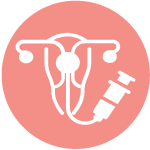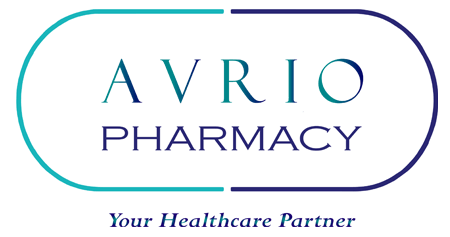Treatment Options
Patient EducationTreatment Options
How do doctors treat infertility?
The treatment of infertility by a reproductive endocrinologist known as Assisted Reproductive Technology, or ART, is highly individualized. Treatment type is dependent upon the cause of infertility, which is determined through testing and lab work and will be based on the patient’s medical conditions and medical history. The four most common ART procedures include: Intrauterine Insemination (IUI), In-vitro Fertilization (IVF), Frozen Embryo Transfer (FET), & Ovulation Induction (OI).

Ovulation Induction – OI
Also the first step within IVF cycles, a process wherein a patient’s eggs are induced via hormone and medication therapy. Some common medications used in this process include Clomiphene Citrate, Letrozole, & Gonadotropins.

Intrauterine Insemination – IUI
Per the fertility organization RESOLVE, IUI is defined as “…the placing of sperm into a woman’s uterus when she is ovulating. This procedure is used for couples with unexplained infertility, minimal male factor infertility, and women with cervical mucus problems. IUI is often done in conjunction with ovulation-stimulating drugs. IUI can be performed using the husband’s sperm or donor sperm. Before IUI, the woman should be evaluated for any hormonal imbalance, infection or any structural problems.
Insemination is performed at the time of ovulation, usually within 24-36 hours after the LH surge is detected, or after the “trigger” injection of hCG is administered. Ovulation is predicted by a urine test kit or blood test and ultrasound.”

In-vitro Fertilization – IVF
The IVF process is broken up into 4 main steps:
- Ovulation Induction; monitoring the ovaries and typically using a combination of hormones and medications in order to induce the ovaries to produce 1 or more eggs
- Egg Retrieval; a long needle is penetrated through the upper vaginal wall in order to withdraw fluid containing eggs from the ovarian follicles
- Fertilization; The process of introducing pre-analyzed healthy sperm to the retrieved egg(s) in order to produce a healthy embryo
- Embryo Transfer; Once the doctor determines that the developed embryo is healthy, a procedure will be set up in order to inject the developed embryo into the carrier’s uterine cavity, via the fallopian tube.

Frozen Embryo Transfer – FET
Embryos that have been previously cryopreserved are thawed and implanted into the woman’s uterus at the appropriate time within her menstrual cycle. The FET transfer may be assisted with medication or natural. In the natural FET, the patient’s own menstrual cycle is closely monitored with lab work and ultrasound to ensure the transfer is completed at the correct time. This type of transfer uses little to no medication. In the medicated FET, patients will be prescribed hormones to take in order to prepare the endometrium for the embryo transfer.
Contact Us
Phone
Ph: (480) 270-6700
Fax: (480) 270-6701
info@avriorx.com
Address
9015 E Pima Center Pkwy #3
Scottsdale AZ 85258
Hours
Monday 8:00AM-6:00PM
Tuesday 8:00AM-6:00PM
Wednesday 8:00AM-6:00PM
Thursday 8:00AM-6:00PM
Friday 8:00AM-6:00PM
Saturday 9:00AM-2:00PM
Sunday CLOSED
Location
Major crossroads: Pima Road & The 101 Freeway
If you have a medical emergency outside of our hours, please contact a medical center or dial 911.
Click here to learn about handling and disposing of expired, damaged and unusable medications.

